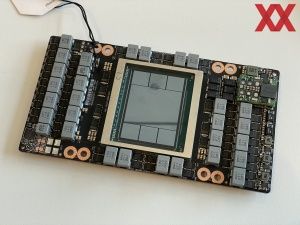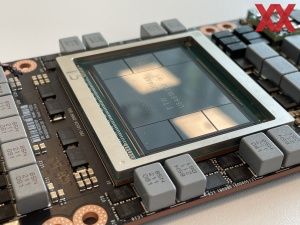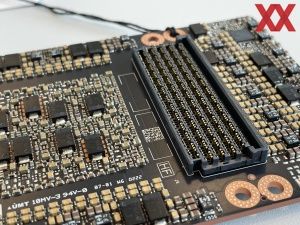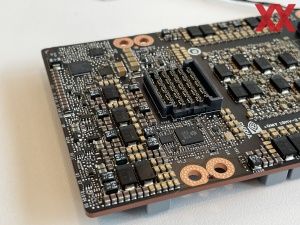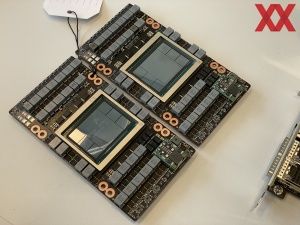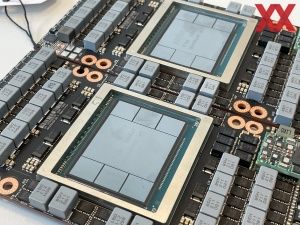Werbung
Von der US-Regierung sind neue Einschränkungen für den Handel mit China erlassen worden – dies berichtet Reuters unter Berufung auf Unternehmenskreise bei NVIDIA. Da die Export-Beschränkungen allerdings eine ganze Produktgruppe betreffen, ist von auszugehen, dass auch andere Hersteller ihre Produkte nicht mehr nach China exportieren dürfen. Dies beträfe dann sogar AMD und Intel.
Betroffen seien aber nicht sämtliche GPU-Beschleuniger, sondern nur die allerneusten Generationen. Konkret ist für NVIDIA vom A100- und dem zwar schon vorgestellten aber noch nicht verfügbaren H100-Beschleuniger die Rede. Bei AMD soll die Radeon Instinct MI250(X) betroffen sein. Auch Intels Ponte Vecchio dürfte in dieses Raster fallen, wenngleich es hier noch keinerlei Erkenntnisse zu gibt.
Die US-Regierung begründet die neuen Export-Beschränkungen mit dem Verhindern eines Technologie-Transfers, der sonst zur Schwächung der eigenen Wirtschaft und Souveränität führen könnte.
Die wirtschaftlichen Auswirkungen für die betroffenen Unternehmen könnten erheblich sein. Alleine für NVIDIA könnte dies einen Umsatzverlust von 400 Millionen US-Dollar bedeuten. Gegenüber der US-Börsenaufsicht SEC hat man folgenden Statement gegeben:
"On August 26, 2022, the U.S. government, or USG, informed NVIDIA Corporation, or the Company, that the USG has imposed a new license requirement, effective immediately, for any future export to China (including Hong Kong) and Russia of the Company’s A100 and forthcoming H100 integrated circuits. DGX or any other systems which incorporate A100 or H100 integrated circuits and the A100X are also covered by the new license requirement. The license requirement also includes any future NVIDIA integrated circuit achieving both peak performance and chip-to-chip I/O performance equal to or greater than thresholds that are roughly equivalent to the A100, as well as any system that includes those circuits. A license is required to export technology to support or develop covered products. The USG indicated that the new license requirement will address the risk that the covered products may be used in, or diverted to, a ‘military end use’ or ‘military end user’ in China and Russia. The Company does not sell products to customers in Russia.
The new license requirement may impact the Company's ability to complete its development of H100 in a timely manner or support existing customers of A100 and may require the Company to transition certain operations out of China. The Company is engaged with the USG and is seeking exemptions for the Company’s internal development and support activities.
In addition, the Company is engaging with customers in China and is seeking to satisfy their planned or future purchases of the Company’s Data Center products with products not subject to the new license requirement. To the extent that a customer requires products covered by the new license requirement, the Company may seek a license for the customer but has no assurance that the USG will grant any exemptions or licenses for any customer, or that the USG will act on them in a timely manner.
The Company’s outlook for its third fiscal quarter provided on August 24, 2022 included approximately $400 million in potential sales to China which may be subject to the new license requirement if customers do not want to purchase the Company’s alternative product offerings or if the USG does not grant licenses in a timely manner or denies licenses to significant customers."
Ob derartige Export-Beschränkungen zielführend sind, ist heiß umstritten. Seit Jahren dürfte gewisse Maschinen in der Halbleiterfertigung nicht mehr nach China exportiert werden und dennoch werden hier inzwischen Chips in 7 nm gefertigt. China macht sich mehr und mehr unabhängig von westlichen Unternehmen – daran wird wohl auch ein Exportverbot für GPU-Beschleuniger wenig ändern.
